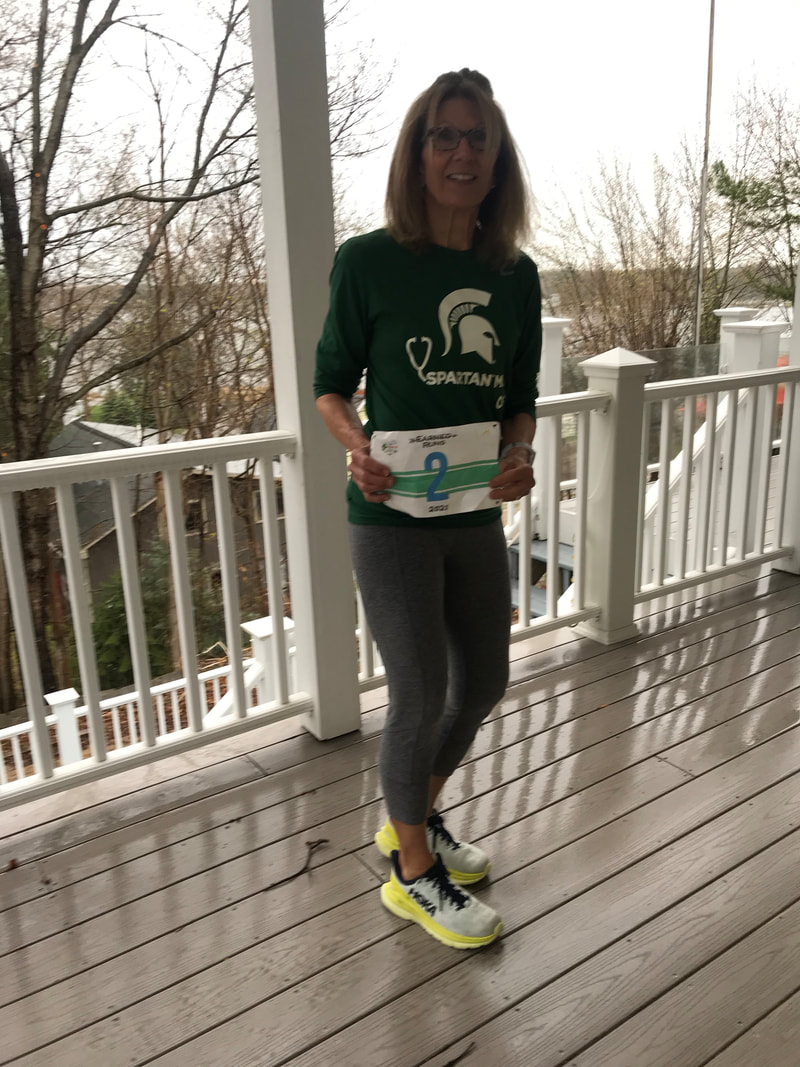BLOG
|
|
PSYCHOLOGICAL EFFECTS OF INJURY
In the April 2106 Runner’s World article, “5 Steps for Coping with the Psychological Effects of Injuries”, author Ashley Rodriguez uses the example of US Olympian marathoner Jordan Hasay to discuss the mental and emotional aspects of recovery from injury. The insights of sports and performance psychologists are employed to address the issue. While elite distance runners and other professional athletes may readily turn to top health professionals for assistance, amateurs and health-seekers do not have such opportunities. Rodriguez’s piece allows us to benefit from advice given to the pros. In summary, the expert advice is:
However, there are several other concerns not discussed by Rodriguez’s article that don’t involve running performance. In my opinion, there are 3 issues that worry the less-than-elite everyday exerciser in recovery. 1) Weight control: Many runners fear that not being able to run will lead to weight gain; it is a common reason to start running! How to avoid the slow accumulation of pounds over 2-6 weeks or several months or more of rest? My experience has been that cutting back on calorie intake is a MUST, and that prescribed STRENGTH training as part of rehabilitation is the greatest protection against weight gain. Strength exercises performed daily per medical advice will burn calories, boost metabolism, and sculpt muscles. Depending on the type of injury incurred, cross-training activities can substitute for running, if care is taken not to over-train 2) Health: The inability to run for aerobic exercise is a concern. The perception might be that this health-conscious group tends to be a bit older, but I know youngsters in their teens and above who fear being inactive. Once again depending on the injury, cross-training by swimming, cycling, rowing, or elliptical use can save the day. However, we come to learn most acutely how upper body and core movements are connected to those of the lower body when exercises that don’t predominantly rely on legs become difficult to perform in this situation. 3) Social losses: It’s fairly obvious that not being able to join a daily morning running or walking group or weekend long-slow-run gang because of an injury will affect socializing. Not being able to easily walk because of a sore knee or hip can cut short a shopping trip to the mall, or prevent playing recreational league sports or joining sightseeing excursions on vacation. The temptation is to participate and carry on as if the injury did not exist, but potentially aggravate it. Guilty. Doing so prolonged my recovery period; lesson learned. The best personal advice I have is to take a pass on the activity or significantly scale down efforts and anticipate needing to take breaks. Check with others involved if they’re okay with your limited participation. Plan regular rest periods. Bring along treatment aids, such as a cold pack for comfort, a band to stretch, a tennis ball for massage. Best strategy for a shorter, successful recovery is to stay on the sidelines as much as possible. My opinion piece doesn’t presume to provide psychological help. It acknowledges my struggles during periods of mild injury rehabilitation. The thoughtful and informed advice given by the Runners World article does this. RUN HAPPY! http://www.runnersworld.com/psychology/5-steps-for-coping-with-the-psychological-effects-of-injuries
0 Comments
Your comment will be posted after it is approved.
Leave a Reply. |
BRIDGE TO PHYSICAL SELF
Running, walking, and fitness activities enable us to experience our physical selves in a world mostly accessed through use of fingers on a mobile device. AuthorEARNED RUNS is edited and authored by me, runner and founder. In 1978 I began participating in 10K road races before 5Ks were common. I've been a dietitian, practiced and taught clinical pathology, and been involved with research that utilized pathology. I am fascinated with understanding the origins of disease as well as health and longevity. Archives
November 2023
CategoriesNew! Search Box
Earned Runs is now searchable! Check it out...
|


 RSS Feed
RSS Feed